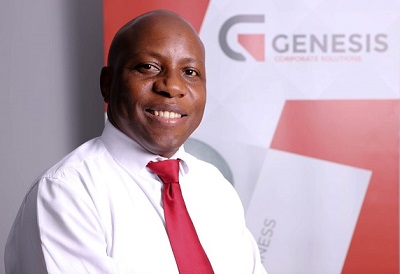

MD: Genesis Corporate Solutions
Trust is one of the unfortunate casualties when a company becomes financially distressed. It then becomes the task of the new leadership to rebuild this trust and establish a relationship that makes shareholders confident that the company will not only remain profitable but that the shareholders will receive a good return on their investment.
However, rebuilding this trust can be a tricky undertaking. I recently read an article on the Deloitte website which discusses this in more detail.
What is organisational trust?
The article points out that organisational trust is the byproduct of a company doing everything it can to get things right for its various stakeholder groups. Trust is built and nurtured when a company demonstrates a high degree of competence and the right intent; meets capability expectations; reliably delivers on promises made; transparently shares information and motives; and displays humanity in caring for the experience and well-being of others.
To meet that high bar, companies should embrace two fundamental principles:
- every stakeholder counts. Shareholders matter, for sure, but so do customers, employees, vendors, regulators, the media, and the communities in which the company operates; and
- talk is cheap. Trust is demonstrated through promises kept and standards upheld. As Sandra Sucher, professor of management practice at Harvard Business School notes, “Trust is not just a feeling, it is created through actions.”

Image By: Kenny Eliason via Unsplash
Who owns the organisational trust agenda?
Who, specifically, is responsible for managing trust? The Deloitte article points out that the vast majority (82% of respondents to a Deloitte survey) say the CEO is ultimately responsible for trust leadership at the company. According to Michael Bondar, Advisory principal and Enterprise Trust leader at Deloitte Consulting LLP, the most important task for the CEO is to set the tone and be clear about what’s expected from the leadership team.
The article adds that CEO leadership on trust can be most effective when the next level of responsibilities is properly cascaded, articulated, and activated. Senior leaders and their respective teams have to play their part in executing trust-building actions. While organisations may or may not name a formal chief trust officer (recent research shows less than 10% have), they need clear ownership of day-to-day systems and processes to manage and enhance trust. Follow-up is essential as this ensures trust is action-oriented. The CEO should regularly report to the board, which would help board members steer the trust agenda and provide effective oversight.
Respondents to the Deloitte survey also almost universally (95%) believed the board should play a key part in building and protecting stakeholder trust. More than three-quarters (77%) say the board shares responsibility with management, while 18% believe the board has primary responsibility.
Building trust hinges on evolving stakeholder concerns
The article points out that how an organisation responds to events can play an outsized role in determining the level of trust stakeholders place in that organisation. Crises call on corporations to address immediate challenges, but leaders also should look beyond the moment and make changes to policies and communications that support customers, communities, and the workforce.
Over the past 18 months, for example, about two-thirds (67%) of respondents pointed out that overcoming pandemic-related challenges was the main area of focus for building stakeholder trust (The Deloitte article was published in February 2023). But as the COVID-19 pandemic becomes less of a pressing concern in many regions, Environmental, Social and Governance (ESG) and climate issues are quickly becoming some of the issues most likely to impact corporate trust building.
The Deloitte survey shows this trend is accelerating. While just 45% of respondents say ESG is a key driver of trust for their company right now, that number leaps to 61% when respondents point to priorities over the next three years. They envision ESG and climate change becoming even more of a priority than other vital trust areas, such as customer experience (52%), innovation (50%), and cybersecurity (49%).
Building a solid foundation to earn—and measure—trust
As previous Deloitte research has shown, organisations struggle with measuring and quantifying trust as an essential performance indicator, and many don’t try to do it at all. The Deloitte article points out that less than half (43%) of respondents say their organisation measures stakeholder trust (figure 10). Among the rest, 45% report their company does not measure trust, and 12% say they didn’t know whether or not they do.
This is not surprising. “Measuring trust is not a core competency for most organisations,” Bondar explains, “but multiple approaches to trust measurement are emerging, from the very tactical to the highly strategic.” Bondar adds that tactical approaches include deploying voice analytics to better understand human emotions in customer or employee interactions. Among more strategic approaches being implemented, some companies use 360-degree organisational assessments to determine whether enterprise domains, such as product quality, are perceived as trustworthy by employees, customers, and other stakeholders.
The Deloitte article adds that, for some organisations, one barrier to measuring trust may be the daunting prospect of establishing complex new data collection processes. But this may not be necessary—at least to start. Sucher explains how companies can use existing programs to better understand stakeholder trust. “A robust Net Promoter Score program that phones customers to understand why they gave the company a low score is one example. Another is employee exit interviews that can be analysed for patterns in why and from where employees are leaving. Work harder with the programs and data you already have at your disposal for insights into trust,” Sucher recommends.

Image By: Desola Lanre-Ologun via Unsplash
The South African landscape
Trust is particularly important in the South African context. When a company assures the public and stakeholders that all is well while the ship is clearly sinking, the efficacy of the message gets lost.
Owning the change management agenda and being open and honest about the challenges that placed the company into business rescue become essential components of rebuilding trust. The new leadership then needs to devise a plan on how they will address these challenges. Following that, they need to become ruthless in the execution of this plan.
Building trust is not only reserved for companies. We cannot forget that there is a trust deficit regarding the business rescue process and how distressed companies view BRPs. As a profession, we must also embark on a significant trust-building exercise to regain confidence.
Phahlani Mkhombo is the MD of Genesis Corporate Solutions and is a Senior Business Rescue Practitioner




